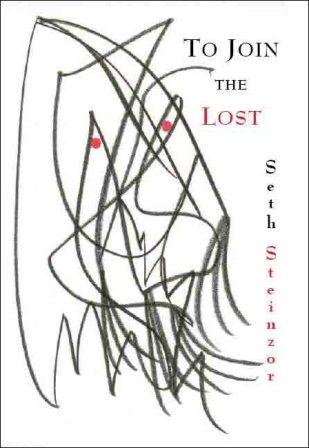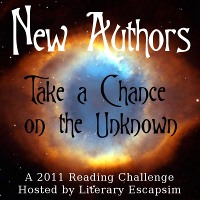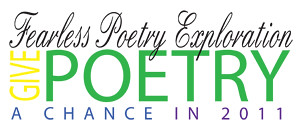
With each canto there is a flavor of “famous” sinners, but also references to the poet’s own sins and regrets. Where the epic poem is strongest is where Steinzor references his own troubles, his own lack of faith, his own indecision, and his own failures. “loading racks and shoving them along a/track of stainless steel into a/box of stainless steel — lower the lever,/close the gate — punch the big red/button, wait — shuddering, hissing — raise/the gate, releasing white clouds –/reach in, extract a rack of formerly filthy,/now gleaming and steaming glasses, or shiny,/clunky porcelain, or scratched-up aluminum/knives, forks, and spoons so hot//” (page 18 of Canto II)
Yes, the poem references some events, many the most horrific in nature (i.e. the Holocaust), and yes, this may seem trite and unnecessary, but these are the moments that most of humanity knows either first hand or through study. These historic instances of unmitigated evil correlate to the references Dante makes from his historical knowledge, such as the reign of Julius Caesar and family wars that existed during that time. However, Dante relies heavily on mythology and religious text to craft each of his cantos, though there are references to his own love, Beatrice, within the poem. This is how Steinzor’s and Dante’s poems are similar.
Unlike Dante who uses mythology and Catholicism to make his points, Steinzor relies more heavily on Buddhism. “. . . That flat little pebble’s the/world of your daily awareness. The pond is/everything else.” (page 43, Canto VI) The line break after “is” signifies a Buddhist precept of being in the here and now without thought to the past or the future — to be in the moment. Many parts of this epic poem are enjoyable, but are bogged down in parts by movement through the circles with Dante and similar pungent smells. However, Steinzor’s verses shine beneath the mire with vivid imagery in stunning ways occasionally. “crowd of moving parts that, overlapping,/layer almost to opacity,/the eye drawn in, each figure a mottled window/into unimaginable//dimension, an almost empty pane.” (page 23 of Canto III) or “Then, suddenly, he dived down smack/upon the landfill — a belly-flop! I sat/on his back, and he body-surfed across/the writhing mass. We regained our feet near an/idling ‘dozer.” (page 44 of Canto VI)
To Join the Lost by Seth Steinzor modernizes Dante’s Inferno in a way that is personal for the poet and tackles some of histories most evil moments and most controversial politically. Some readers will not enjoy the comments about a former president or other topics touched upon in this epic poem, but the gems in this epic are the more personal aspects of the piece.
***Stay Tuned tomorrow for my Interview with Seth Steinzor.***
About the Author:
Seth Steinzor has been writing poetry nonstop since his teens. To Join the Lost is his first book. Visit his Website. Here’s a preview of one Canto.
Please check out the other stops on the tour by clicking the TLC Book Tours image at the left.
This is my 28th book for the Fearless Poetry Exploration Reading Challenge.








I like what the poet says in the afterword about how the only way to say what Dante’s poem means to him is to write his own version. There’s something really nice about that; this one is both a tribute and a modernization. Although I found it slightly less explicit about how the punishments in hell fit the crimes committed on earth, always a favorite prurient pleasure of reading the original.
I did enjoy the afterword, but I left that gem for the readers to find on their own. This is a poet passionate about Dante, and that passion is best read.
I agree that this is less explicit in why punishments are as they are for certain sinners.
Serena, thanks for your thoughtful review – there’s a special thrill for a poet when a reader pays such close attention to the work.
Dawn, I hope my book can be a gateway back to Dante for you. By the way, the cover is based on an exercise a wonderful art teacher taught me in first grade; you scribble something randomly, freehand, and then look for the figure in it. It’s a face – at least, that’s what I see!
The red eyes in this face are very creepy! And you’re welcome. Poetry reviews are my specialty here on the blog. I love to get newly published poets noticed.
Reading your review IS like being in a poetry book club 🙂
I read Dante’s INFERNO too long ago (high school involved typewriters for me), so I’d definitely need to re-read that and engage in discussion in order to get the most out of this.
I’ll admit I spent some time looking at the cover – can’t decide if it’s a face or a naked woman.
Dawn, thanks for saying so about my reviews. I hope that I don’t get too involved in the text for those who don’t want it spoiled.
I’m not crazy about this cover at all, but I do see a face.
Very interesting about the Buddhism in the poem — I particularly was impressed when you caught the line break after “is”! One thing I like about book clubs and reading reviews of books I’ve read is that people will point out things that went right over my head, so I definitely see how this would make a particularly good book club pick if members were open to poetry.
Thanks for being on the tour, Serena!
Thanks for stopping by the review. I think this modernization would have been flat without at least some reference to religion since it played a large role in the Inferno.
I’d been looking forward to your thoughts! I think we felt similarly in many ways, but the constant Holocaust references got under my skin. I appreciated your observation about Steinzor’s Buddhist beliefs influencing his writing — that hadn’t jumped out to me but of course, I so see it — both in the lines you quoted but in other ways he described what he saw, experienced, etc.
I would have noticed them even if I didn’t know about his Buddhist leanings. I thought it was interesting to add that with the Catholicism. I think there are tons of quotes I could have used, but chose these that were easiest for me to explain. 🙂 I’m gonna check out your review too.
In some ways, the lack of overt religiosity was interesting for me — since the original was so infused with Catholic/Christian theology.
I’ve commented on your post…but I think it would have been interesting to see pop culture icons etc., in the epic poem to replace the absence of mythological figures.
I haven’t read the Inferno, so I would miss those connections and deviations. I don’t think this is my cup of tea, but it does sound like a book that makes you think and could generate discussion.
I think if there were such a thing as a poetry book club, this would be an excellent selection to have the club read and discuss.
Sorry to so rudely jump in your thread, but I had to echo your comment, Serena — I was contemplating saying something to that effect in my review, too — it definitely would be marvelous for a book club.